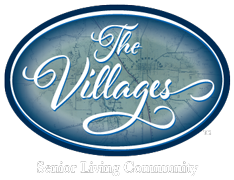It’s natural for older adults to experience occasional forgetfulness or take longer to complete some tasks. However, significant cognitive decline and dementia are not normal parts of aging.
Dementia is a progressive condition that affects millions of aging adults and their families. Your loved one may start showing early signs that disrupt their daily life, such as frequent forgetfulness, confusion about time or place, misplacing items, or sudden mood shifts.
Recognizing the warning signs early can support planning, timely medical evaluation, and the opportunity to explore dedicated memory care options that offer safety, structure, and personalized support.
While each person’s journey is unique, early intervention can make a meaningful difference in preserving independence and improving quality of life.
What Is Dementia?
Dementia refers to a group of symptoms caused by changes in the brain that interfere with memory, reasoning, and daily function. It’s not a specific disease but an umbrella term for cognitive decline beyond typical aging.
It’s a condition most common in elderly adults and can affect thinking, judgment, behavior, mood, and even movement. Although dementia is progressive, identifying it early offers opportunities for treatment, support, and planning.
Individuals aged 65 and older are more likely to be diagnosed with dementia as symptoms appear more obvious, making it easier to differentiate them from normal lapses in memory. However, early-onset dementia can happen in younger adults.
What Is the Difference Between Alzheimer’s & Dementia?
Alzheimer’s disease is the most common form of dementia, but the 2 terms aren’t interchangeable. Dementia refers to the broader group of symptoms, while Alzheimer’s is a specific brain disease responsible for 60–80% of dementia cases.
Understanding the distinction can help families explore the right care options and anticipate the path forward.
What Are the First Signs of Dementia?
While symptoms vary, many people in the early stages of dementia exhibit similar changes in behavior, memory, and function. Paying attention to these signs can help your loved one get the support they need.
Memory Loss That Disrupts Daily Life
Occasional forgetfulness is normal with natural aging. However, frequent memory lapses—especially forgetting recently learned information, relying heavily on reminders, or asking the same questions repeatedly—can indicate something more serious.
Difficulty Planning or Problem-Solving
Tasks that once came easily, like cooking familiar recipes or managing bills, may become frustrating or confusing. These changes in problem-solving can affect a person’s ability to live independently.
Confusion About Time or Place
People with dementia may lose track of dates or seasons, forget where they are, or struggle to recall how they got there. Even familiar environments may begin to feel unfamiliar or disorienting.
Trouble with Visual-Spatial Relationships
Vision changes can be a lesser-known symptom of dementia. Difficulty judging distances, reading, or recognizing faces may occur. These changes can affect walking, navigating stairs, or even safe driving.
New Language Difficulties
Those in the early stages may have trouble following conversations, pause mid-sentence, or call objects by the wrong names. Communication challenges often contribute to social withdrawal and frustration.
Misplacing Items or Inability To Retrace Steps
Seniors living with dementia might place items in unusual spots—like putting a wallet in the freezer—and be unable to find them again. They may accuse others of moving or stealing items due to their inability to retrace their steps.
Poor Judgment or Decision-Making
Dementia may impair decision-making, such as giving away large sums of money, ignoring personal hygiene, or wearing inappropriate clothing for the weather. These actions are usually out of character and become more noticeable over time.
Withdrawal from Hobbies or Social Activities
Early dementia can make once-enjoyable activities feel confusing or overwhelming. A person may begin withdrawing from hobbies, social gatherings, or community events they previously loved.
Changes in Mood or Personality
Emotional changes are common, including increased anxiety, fear, suspicion, or depression. A once-outgoing person might become withdrawn or easily upset, especially in unfamiliar settings.
Physical Changes: Is Mouth Hanging Open A Sign Of Dementia?
Dementia can bring about unique physical changes, from unusual posturing to issues with mouth function, such as difficulty chewing or swallowing.
While an open mouth in an older adult isn’t exclusive to dementia, it can sometimes indicate cognitive decline. It may be caused by weakened facial muscles, decreased awareness, or neurological changes, especially when combined with other cognitive symptoms.

When to Seek Help
If you notice any of these signs in a loved one, consult a healthcare professional for a proper evaluation. Early detection provides an opportunity to slow the progression, plan for care, and find the right support systems.
It also allows families to address safety, access medical resources, and prepare emotionally and practically for the changes ahead.
Where to Seek Help
When a loved one begins showing signs of dementia, families are often faced with important decisions about care. You may choose to support an elderly parent or partner at home, or your loved one may benefit from professional care options.
No matter your decision, you’re not alone—there are resources to support you and your loved one through this journey.
Memory Care
Memory care communities are designed specifically for individuals experiencing cognitive decline. These settings offer structured routines, trained staff, and enhanced safety features to reduce confusion and stress.
For many families, memory care provides peace of mind by combining professional oversight with personalized support in a secure and compassionate environment.
Support Groups
Caregiver support groups—offered in person or online—can be a lifeline. They provide a safe space to talk openly, share challenges, and learn from others going through similar experiences.
Many national organizations, such as the Alzheimer’s Association, host regular meetings and webinars for family caregivers.
Respite Care
Burnout is common when caregiving becomes a full-time role. Respite care offers short-term, temporary relief, allowing you to step away while your loved one receives professional supervision and support.
Whether it’s for a few hours or a few days, respite care can help restore balance and prevent caregiver exhaustion. It can also be a vital resource when you need to take time to reassess your loved one’s needs or experience what it’s like living in a senior community.
Educational Resources
Understanding dementia and its progression can help you feel more prepared and confident in your role.
Organizations like the Alzheimer’s Association, Family Caregiver Alliance, and local health authorities offer toolkits, webinars, and checklists to help you manage daily care responsibilities.
Professional Care Planning
A geriatric care manager or social worker can assist with long-term planning, from coordinating healthcare appointments to navigating financial and legal decisions.
These professionals can also help families evaluate when more advanced care, such as memory care, may become necessary.
Caring for someone with dementia is deeply personal, and every family’s journey is different. Whether you choose to support your loved one at home or explore memory care options, remember help is available, and you are not alone.
Creating a Safe & Supportive Environment
Should you decide to consider a memory care community, creating a secure and structured environment is one of the most important ways to support someone experiencing cognitive decline.
That means more than just medical care—it includes thoughtful spaces, a compassionate staff, activities for residents, and everyday routines that foster calm and connection.
The right community for dementia care should also prioritize safety in meaningful ways. Technologies like UV-C air purification, such as the Sammy Air Filtration system, can reduce exposure to airborne pathogens, helping create a clean and secure atmosphere.
Supportive features may also include:
- Medication management
- Emergency response systems
- On-site personal care 24/7
- Chef-prepared meals tailored to dietary needs
- Comfortable indoor & outdoor social spaces
- Opportunities for physical activity in a guided setting
The environment should offer ways for residents to feel at home, with amenities like an activity room, fitness space, salon and barbershop, and social areas that provide dignity, stimulation, and comfort.
Your Choice for Memory Care in Murfreesboro
At The Villages of Murfreesboro, we offer all these elements and more, welcoming residents of all backgrounds with warmth and professionalism. Whether you’re considering memory care or planning ahead, our team is here to help your loved one feel supported, safe, and truly at home.
Book a tour today to explore how we combine personalized care with healthful living. Discover how our Maud Ferguson Memory Care Neighborhood can meet the unique needs of seniors experiencing cognitive decline.



